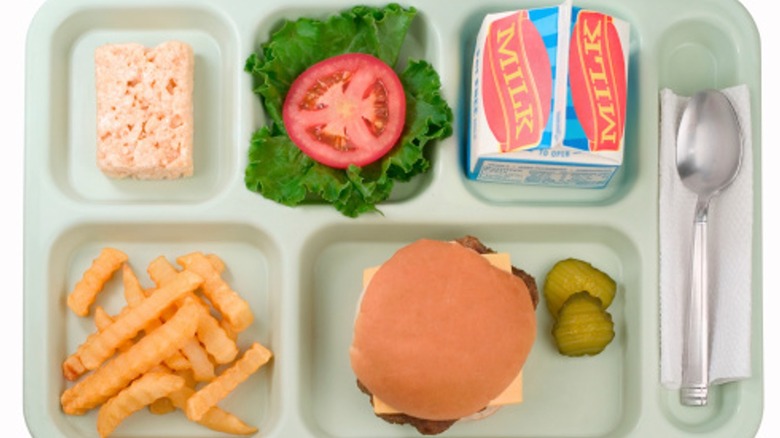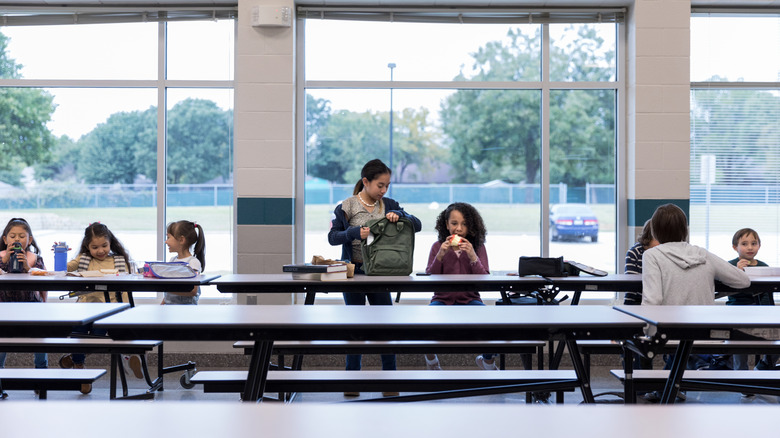Why Over 22,000 Pounds Of Chili Is Being Recalled From School Cafeterias
How well do you remember school lunches? You might remember them being hit-or-miss, from stuffed crust pizza to the less desirable meatloaf. But whether you loved it or gagged at the thought, you probably never had to worry about your school lunch having to be recalled because it may or may not contain traces of poison.
According to the USDA's Food Safety and Inspection Service, Ohio-based J.T.M. Provisions Company announced it was recalling 22,530 pounds of its frozen beef chili due to fear of foreign containments. J.T.M. supplies food to school cafeterias nationwide, serving California, Massachusetts, Pennsylvania, New York, New Jersey, and Wisconsin. The recall began when a customer who ordered frozen beef chili discovered that a plastic material had been packaged within the contents. Any chili product printed with the code 23058 and dated February 27, 2023, should be disposed of or returned to the place of purchase immediately at the request of the Food Safety and Inspection Service.
Fortunately, no illnesses or deaths have been reported regarding the frozen chili, so the problem may have been found just in time. But this raises an unsettling question: how often do recalls like this happen regarding foods served in school cafeterias?
School lunch recalls are uncommon but have happened
School lunches have been recalled for various reasons, ranging from contamination to carrying foodborne diseases.
For example, in February 2018, the Waco, Texas plant for the Pilgrim's Pride Corporation was discovered to have accidentally shipped out 100,000 pounds of frozen breaded chicken patties that had been contaminated with rubber from a faulty machine. Although no one reportedly became sick following this announcement, it was still something of a shock to hear, considering a vast majority of the chicken patties would have been served in schools across the state. In 2016, packets of sunflower seeds distributed by E S Foods meant for school snacks were recalled when it was feared that these seeds were contaminated with Listeria. Again, it's fortunate that no deaths or illnesses from consuming any tainted sunflower kernels were reported.
While this may seem very shocking, the good news is that a part of what makes these recalls noteworthy is how uncommon they are. Most of the time, many foods used in school lunches undergo strict safety inspections before being sent out. Whenever recalls do happen, they are sent out as quickly as possible to ensure that as much of the tainted product is removed before it is served to unwitting students.

